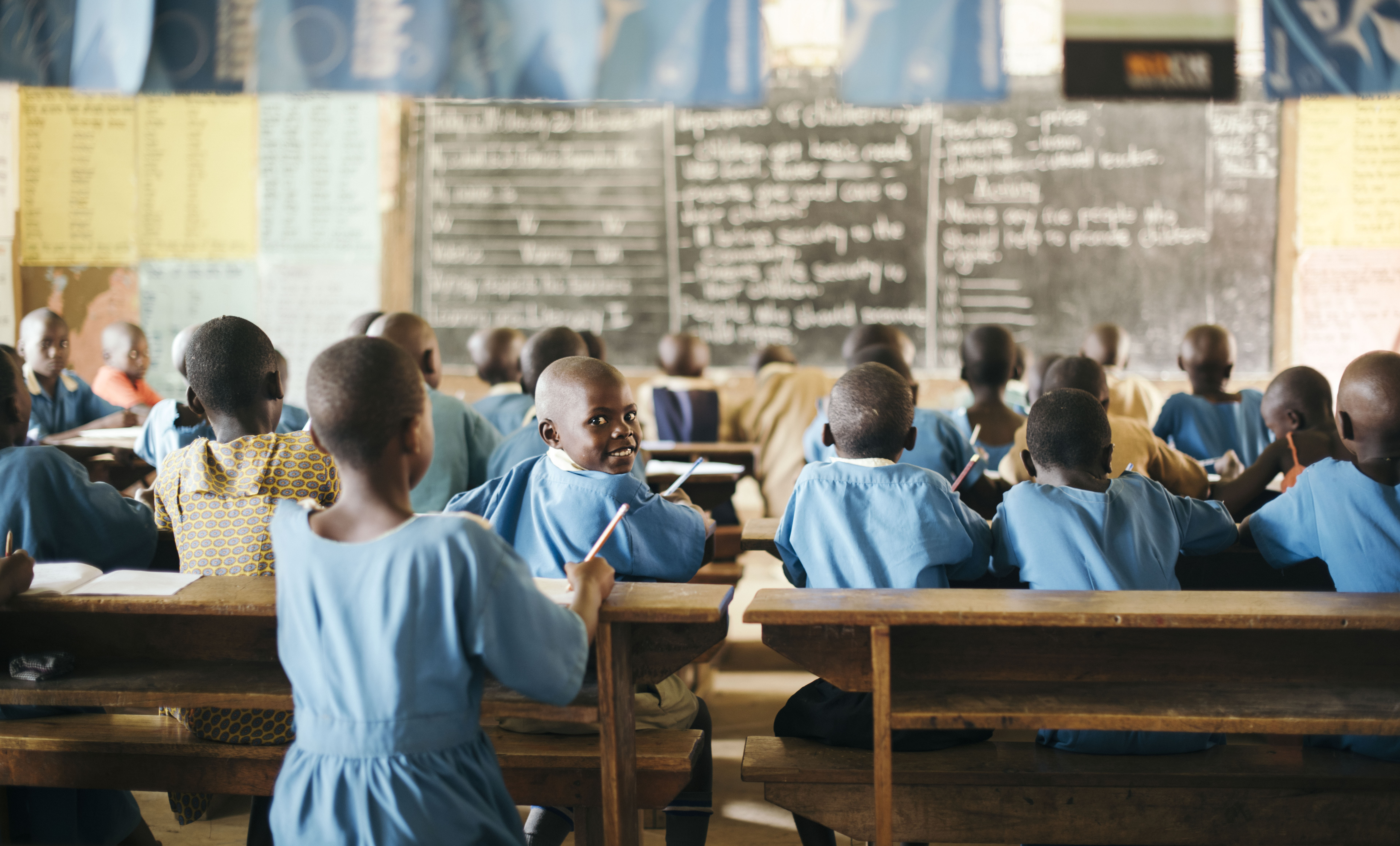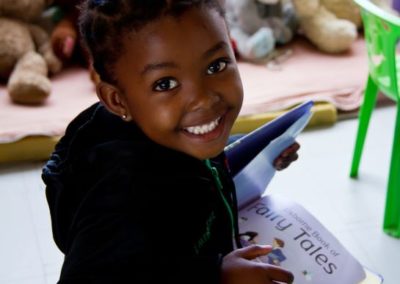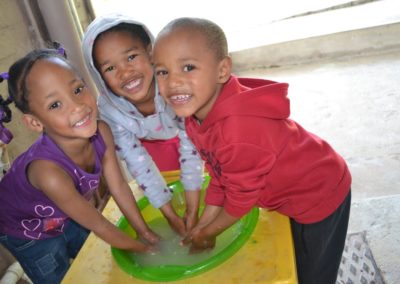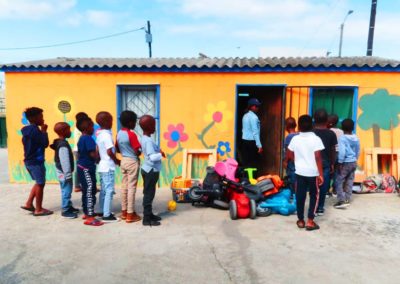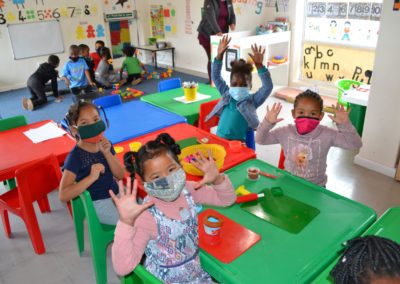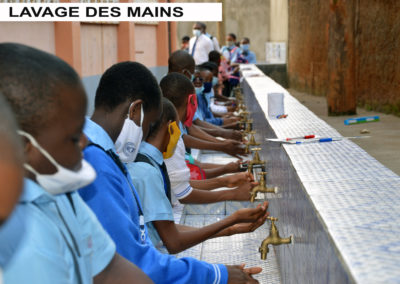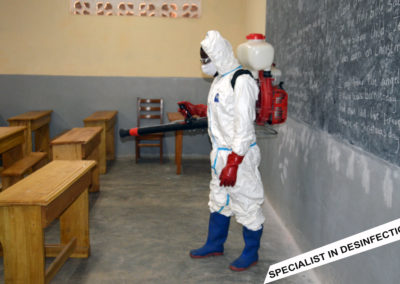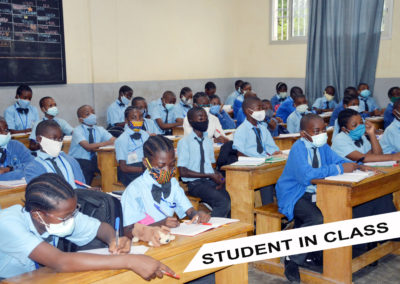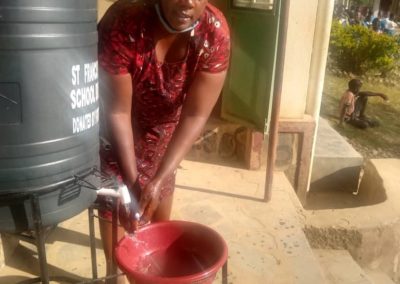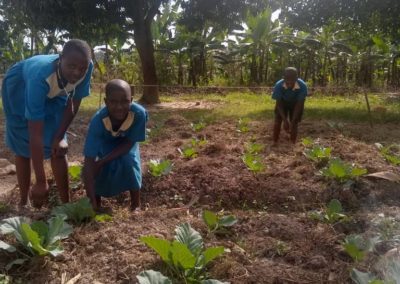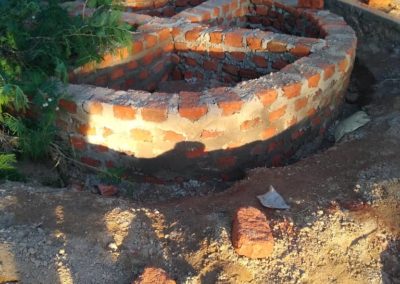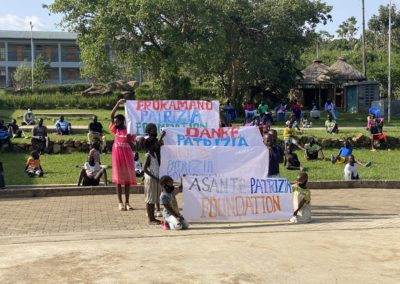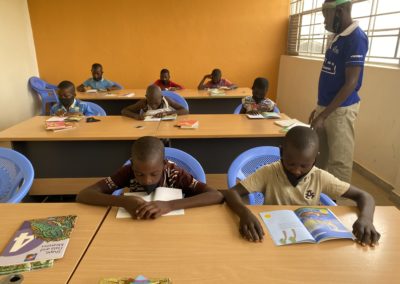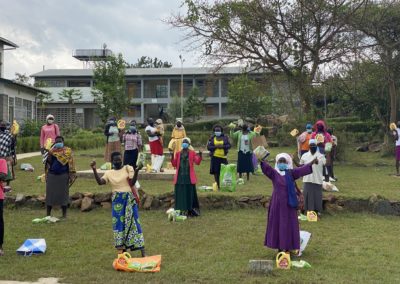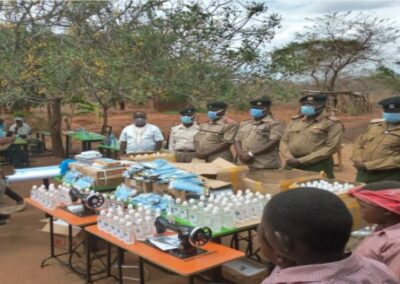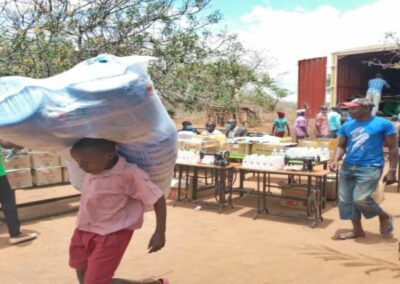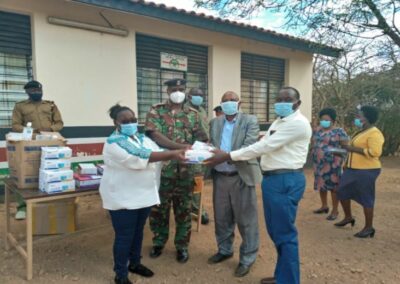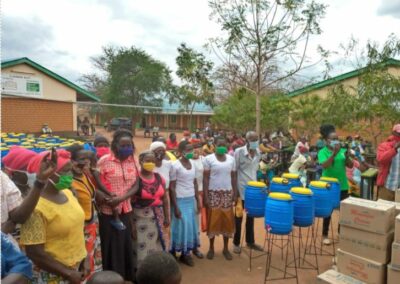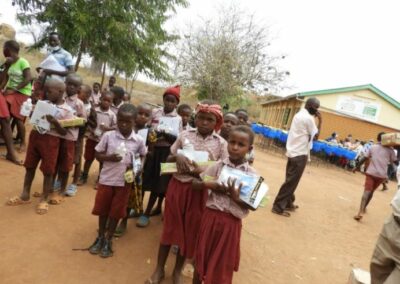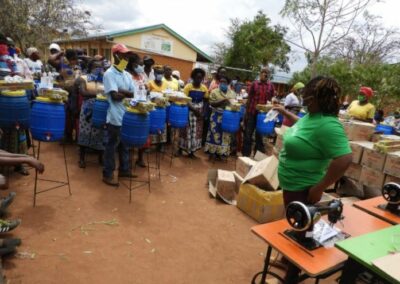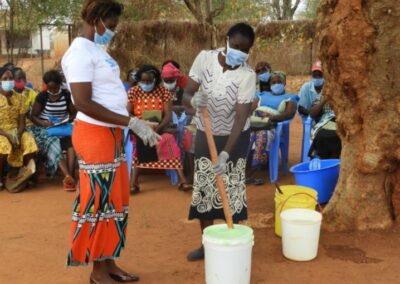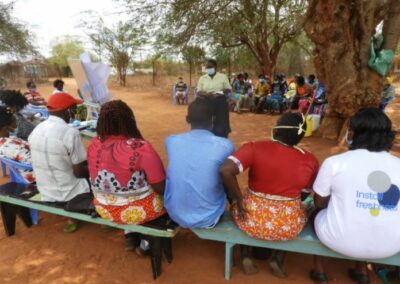Corona fund
Since the beginning of the coronavirus pandemic, teaching in many schools around the world has no longer been possible under normal circumstances – including our KinderHaus facilities, where time and again classrooms stand empty. Without regular income due to the crisis, many parents are no longer able to pay tuition fees, and without the right systems to provide lessons online, when schools shut there is no way to teach the children.
This is something we want to change – and change quickly – by joining forces, alleviating existential needs and providing new infrastructure so that children and young adults affected by the pandemic do not lose the opportunity to enjoy a better future.
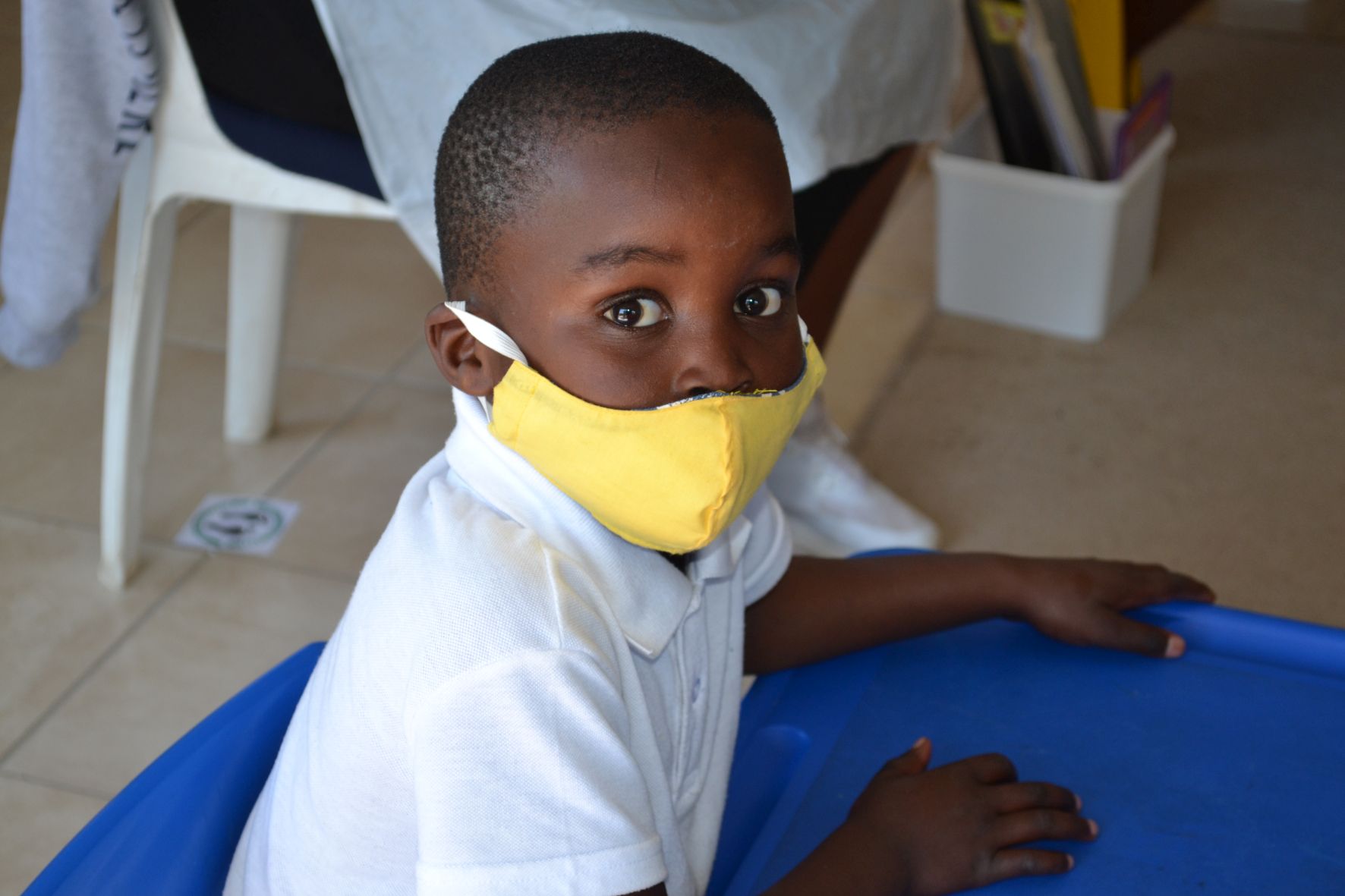
In April 2020 we set up a fund called Corona Fund Education Healthcare, the aim of which is to provide immediate help on the ground. By donating to the fund, you can support our projects in the long term.
To see how the emergency fund has already allowed us to make a real difference at our KinderHaus facilities, click here.You can also read here how our facilities are assuming social responsibility during the crisis.
Let’s work together in taking responsibility for everyone who needs our support!
„Our CORONA FUND EDUCATION HEALTHCARE allows us to provide immediate aid so we can all do our best to overcome the crisis facing children worldwide at our PATRIZIA KinderHaus facilities. Do help us in our efforts. Thank you!”
Wolfgang Egger
Founder of the PATRIZIA Foundation
How the Corona fund helps in the crisis
Corona Fund Education Healthcare – donation account:
You too can support us in giving the children and young people in our children’s homes access to education. Together we have the opportunity to contain the consequences of the global corona pandemic.
IBAN: DE59 7208 0001 0160 0333 00
BIC: DRESDEFF720
Usage: Corona Fund
All donors of 50€ or more will receive a donation receipt
A fund that helps during the crisis
Since the establishment of our KinderHaus facilities more than 20 years ago, we have been able to help more than 220,000 children.
The coronavirus pandemic marked the beginning of a new chapter in the history of our foundation. As an immediate measure, the PATRIZIA Foundation set up Corona Fund Education Healthcare. We immediately paid €100,000 of reserves into the fund to help affected facilities, and this was topped up with donations from our kind supporters. By the end of 2020, roughly €240,000 had been collected, 100% of which we are using to provide immediate support to our projects.
During the first year of the pandemic, €175,000 were sent to facilities in need (as of 31 Dec 2020), mainly for emergency measures to maintain infrastructures and prepare facilities to open again by taking preventative steps to stem the spread of Covid-19. As part of a long-term campaign, we also launched our Ready for the Future programme, a digital transformation initiative initially being implemented in three pilot countries (Cameroon, Nepal and Rwanda).
Our hope is that with the help of the relief fund and the continued support of our sponsors, the crisis at our KinderHaus facilities will eventually take a happy turn. After all, our goal is still to give children worldwide access to education.
This is where we help
Money from our special pandemic fund – Corona Fund Education Healthcare – is used to provide immediate aid at the KinderHaus facilities that need urgent help. We’re following this up with preventative measures aimed at containing Covid-19.
PATRIZIA School Harare in Zimbabwe
The coronavirus pandemic has also had a severe impact on the PATRIZIA school in Harare in Zimbabwe. Rising Star School would normally welcome 1180 children to the classroom every day, and for many pupils school dinners are the only nutritious meal will they will receive all day. The school was completely shut down from the onset of the pandemic until the autumn of 2020. As well as having to stop lessons and teachers not receiving pay, it was totally impossible to provide the children with nourishment.
The PATRIZIA Foundation helped the school with a five-figured injection of funds to make sure schoolchildren could at least continue to receive meals again.
This money was also partly used to fund personnel costs and implement hygiene measures. Effective tools in combating the spread of Covid-19 are nose and mouth covers, soaps and disinfectants.
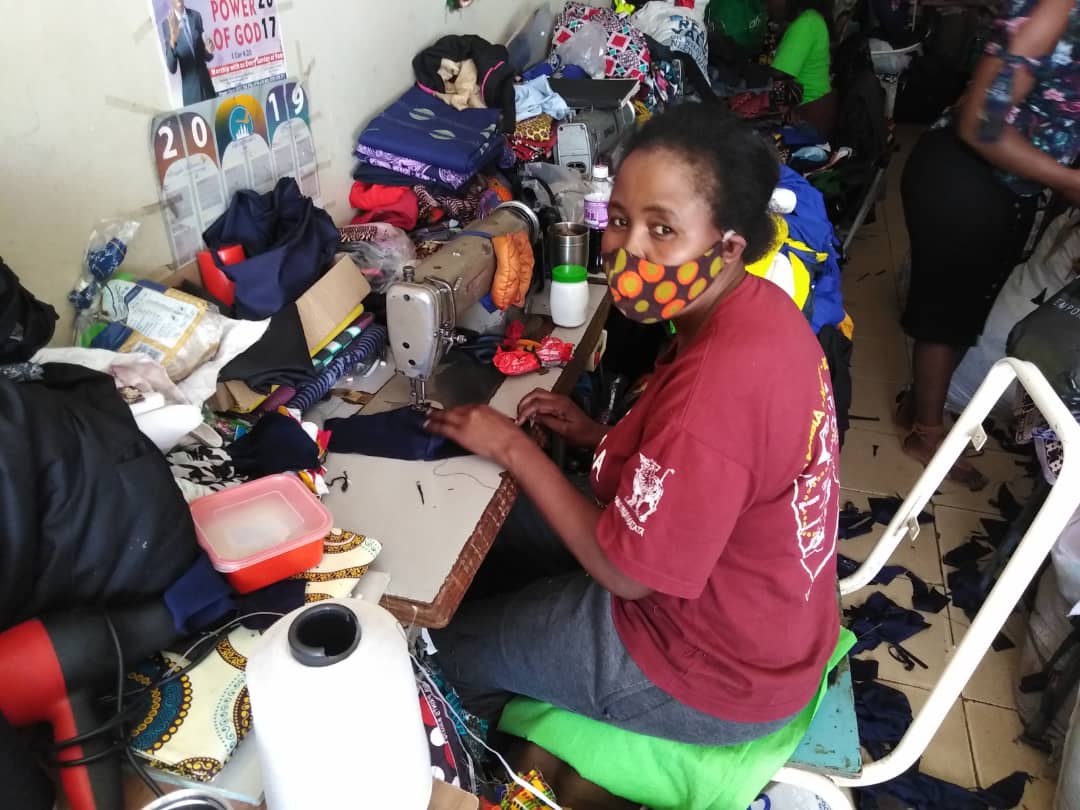
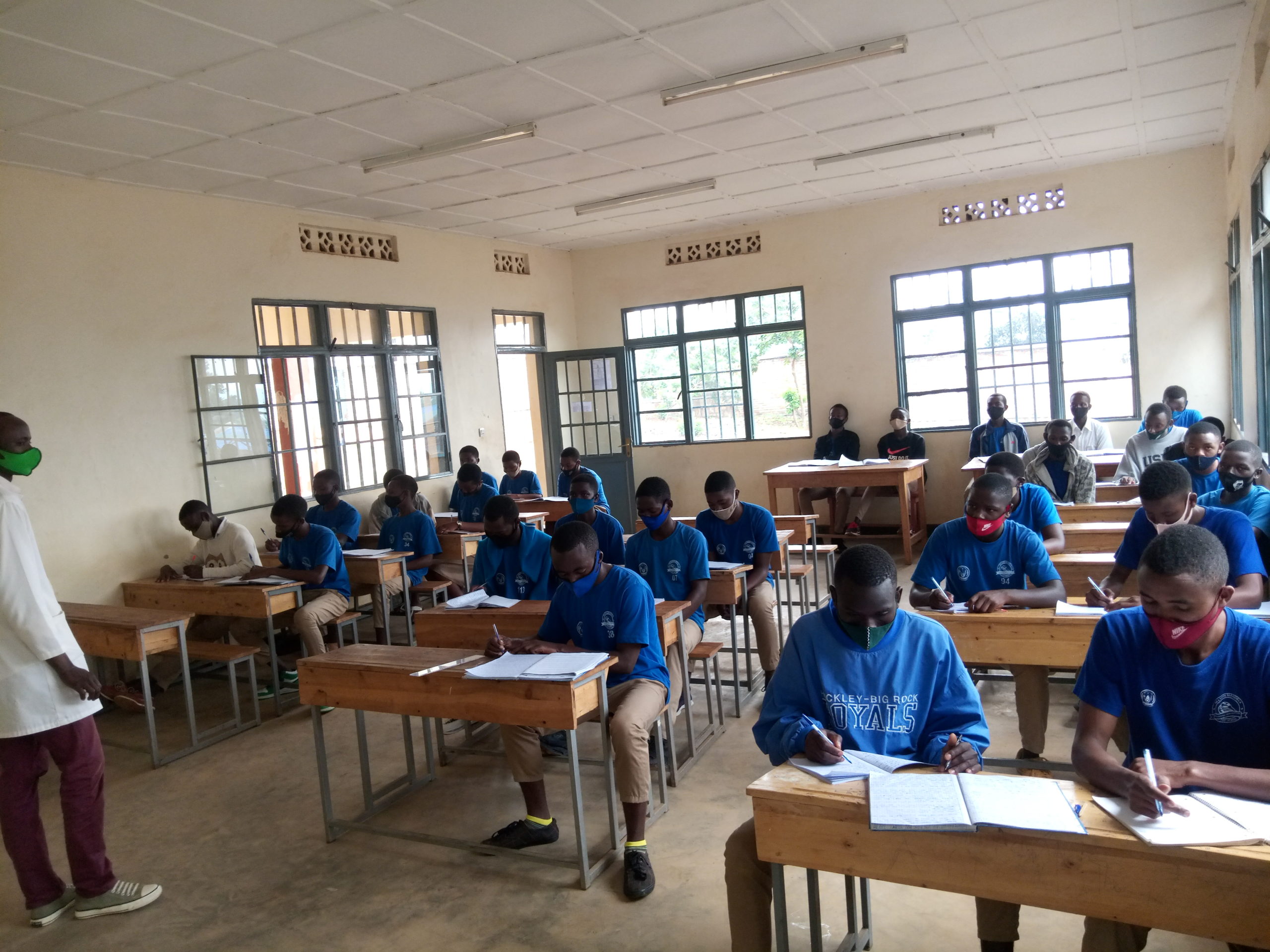
PATRIZIA Vocational Training Center Ntarama in Rwanda
Most of the school’s funding comes from tuition fees. The pandemic and having to stop lessons resulted in severe losses for the school, which the PATRIZIA Foundation was able to offset with emergency aid from the special Corona fund. This money was needed to pay staff salaries and buy materials required for new hygiene measures at the school.
A major share of school funding comes from tuition fees. This money dried up due to the coronavirus pandemic, threatening the very existence of the school and its future plans. Full-time teachers at public schools are paid by the government. But the salaries of auxiliary staff such as cleaners, cooks, drivers and additional part-time teachers also have to be paid. At the beginning of the lockdown, the school immediately froze all possible budgets, but the bills continued to pile up.
School dinners had been ordered and still needed paying for. There were also service and maintenance fees for things such as clearing blockages from the sewers – a crucial hygiene factor for the school – which also incurs costs. In addition, the school owns a host of mechanical devices and equipment used for educational purposes and these have to be kept safe from thieves. As a result, the school is lit up at night. This is an extremely important security issue, all the more so during the lockdown when there were fewer people on the premises.
To meet the new hygiene requirements and prevent the virus from spreading, the school needed to install new washing facilities that were easy to access for students.
How the Covid-19 fund helped in Ntarama
Money from the healthcare and education relief fund helped PATRIZIA Vocational Training Center Ntarama meet its expenses during the first year of the pandemic in three stages. First, the centre settled outstanding obligations to staff, providing them with more security. Second, the fund paid its electricity bills and settled its maintenance debts for the school and equipment. Third, money was invested in the construction of five new washrooms so the school could get back to offering lessons as soon as possible.
The digital classroom project
The second step was to use the Covid-19 relief fund to set up a computer room, which a group of students built themselves as part of a practical work assignment. The room forms the basis of the Digital Classroom project, which has been launched in Rwanda as one of three pilot countries.
The digital classroom will not only benefit students in the future, it will also make it easier for teachers to prepare lessons by using online teaching materials and videos. The project will also enable the school to forge networks and exchange ideas on careers and technical issues with schools in other countries. This will make the school one of the best vocational schools in Rwanda.
PATRIZIA Aftercare Hamburg
Money from the Corona fund made it possible for us to compensate for financial losses caused by the outbreak of the pandemic. In addition, IT services (systems, licences and expansion of a token system that allows processes to be run in any location) have been expanded and communication with families was improved by introducing a real-time interpreting system for telephone calls. This provided our partner, SeeYou, with important reassurance that PATRIZIA Aftercare Hamburg will still be in a position to keep offering all services.
Protective measures aimed at containing the pandemic meant that it was suddenly no longer possible to keep the established and proven processes running, especially those required to offer social-therapeutic aftercare. Although the interdisciplinary team faced new challenges, it always remained true to its goal of providing the best possible support to families, even – or particularly – in this time of crisis.
Aftercare personnel were only permitted to visit families at home under exceptional circumstances, which made the situation even more difficult for families and resulted in financial shortfalls for SeeYou. The foundation also urgently required interpreters, who were needed to talk to families over the phone because many had a poor command of German.
SeeYou nonetheless solved the issues, as staff stood by the families and helped them build an individual support network – even during this difficult time. Access to a robust network of social and medical contacts does so much to enhance the effectiveness of medical treatment, especially with chronic diseases.
How the Covid-19 fund helped at the aftercare centre in concrete terms
SeeYou has broken new ground and introduced virtual processes. The PATRIZIA Foundation provided financial support with its endeavours by purchasing a computer system and licenses, also expanding the token system for work carried out in different locations.
Money from the PATRIZIA Foundation Covid-19 relief fund enables SeeYou to continue providing its services without impediment. Not only does this mean it can continue helping families with chronically ill children or premature babies, it can also provide support not covered by health insurance schemes. This is where an operating grant from the relief fund came in by ensuring the costs of aftercare work carried out by SeeYou staff could be covered. The interpreter service also allowed aftercare staff to talk to patients – without hindrance – and provide them with targeted help.
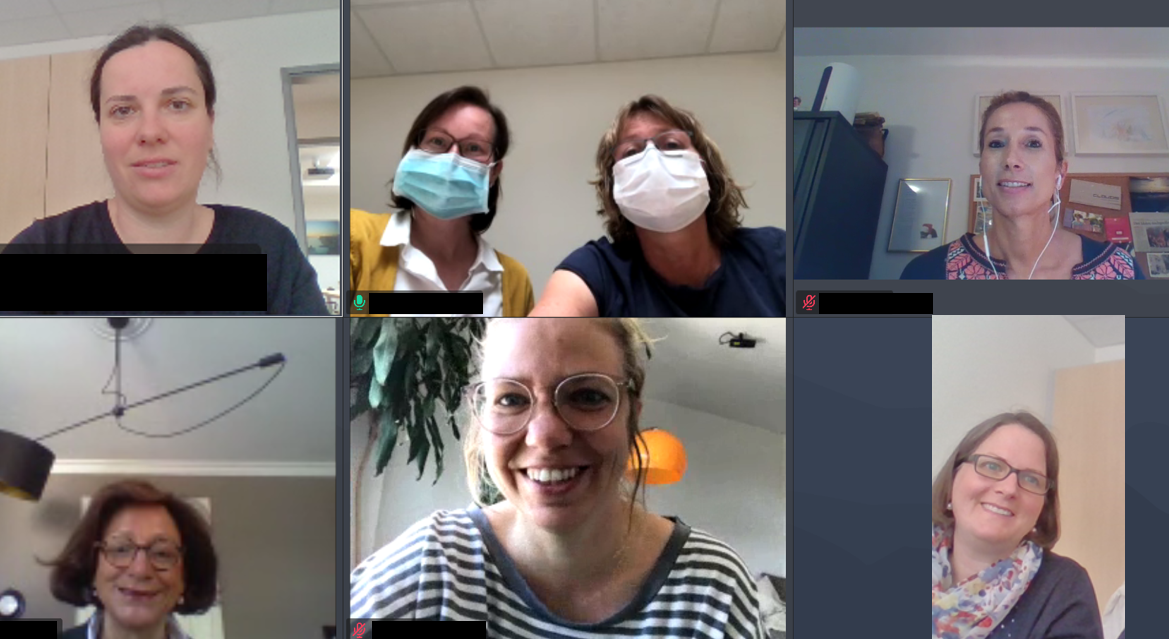
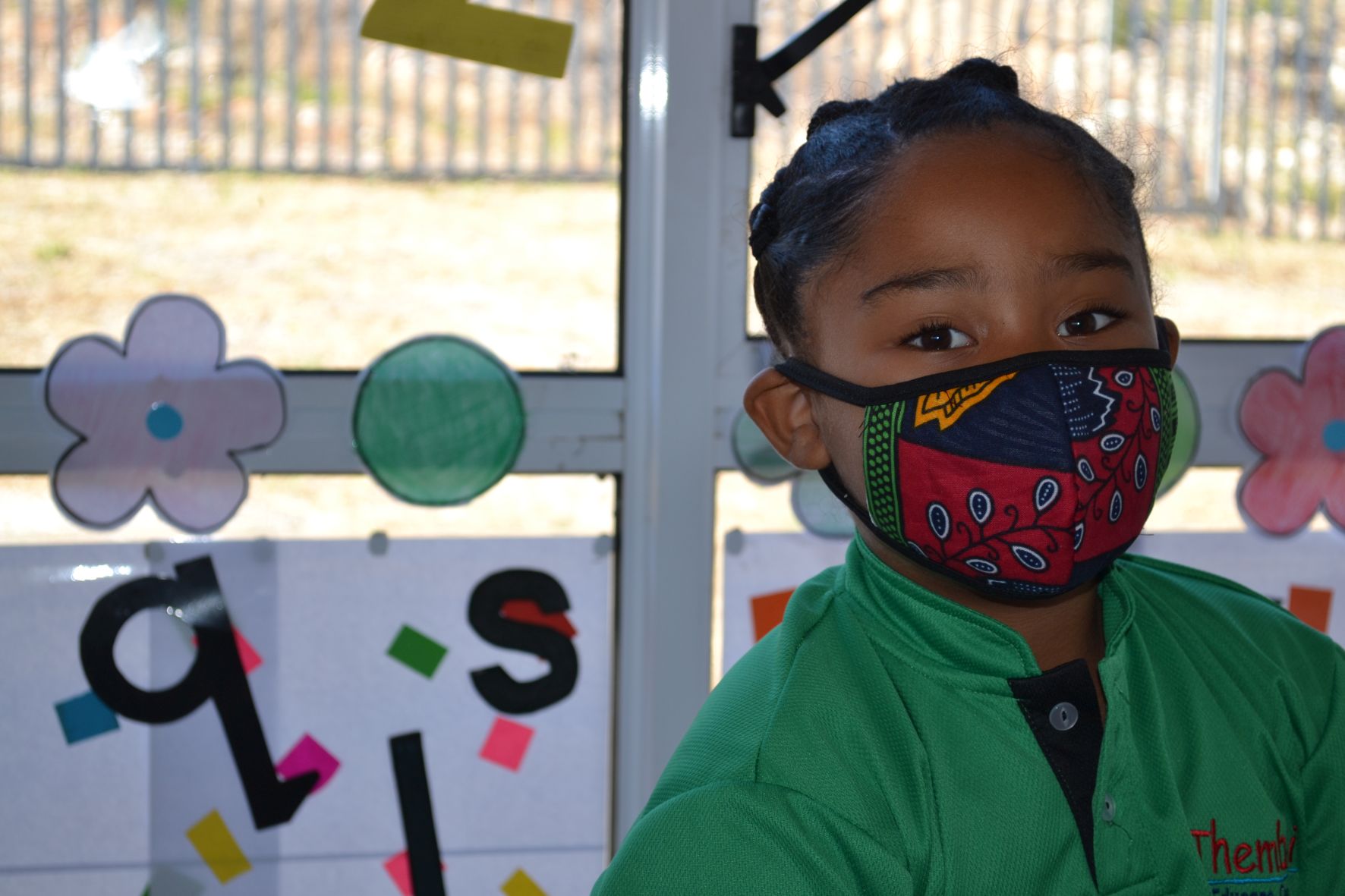
PATRIZIA Child Care Western Cape, South Africa
Thanks to the relief fund, Corona Fund Education Healthcare, the PATRIZIA Foundation was able to provide support on three levels: food vouchers for the families of children at the centres; an operating allowance for facilities, so staff salaries could still be paid during closures; and the provision of learning materials for the children, so they could receive some form of education during the lockdown.
When the Covid-19 pandemic broke out, all educational institutions throughout the country were closed. For the children at the Educare Centres, the closures also meant they had no access to meals previously served at the facilities, and as a result, their basic nutritional needs were no longer being met. Many of the parents of children who attend the Educare Centres are seasonal fruit pickers who have no income in the winter. The pandemic has left many of them unemployed, and without any source of income they can no longer afford the school fees. Even staff at the Thembalitsha Foundation feared for their livelihood.
How the Covid-19 fund helped in South Africa in concrete terms
Thanks to monetary support provided by the relief fund, Corona Fund Education Healthcare, the Thembalitsha Foundation has been able to hand out food vouchers to the families of children during the months that the centres were closed. The PATRIZIA Foundation also helped the Educare Centres with top-ups on fixed costs so they could pay staff salaries despite the closures.
In addition, the Covid-19 relief fund was able to pay for learning materials for the children to help them learn at home. To reach out to as many children as possible, materials were prepared for different age groups and provided in the children’s mother tongues.
The Educare Centres reopened their doors in early September 2020 under the government’s strict Covid-19 restrictions. The measures are supported by the PATRIZIA Foundation, and they have made it possible for the children to receive an education again while still observing distancing requirements and hygiene rules.
PATRIZIA School Yaoundé, Cameroon
Life at PATRIZIA School Yaoundé – with its 600 pupils and 65 teachers, not to mention other staff members – came to a screeching halt when Covid-19 hit. To help the school return to normality as quickly as possible, it received money from the Corona fund – Corona Fund Education Healthcare. The money was invested in much-needed renovations to sanitary facilities, new masks, disinfectant and medical supplies for the recently completed hospital ward. A full-time nurse also now cares for students and staff.
But first of all, the school needed help with producing learning materials and supplying pupils at home. In a country like Cameroon, where less than half of all primary schoolchildren have the option of moving up to a secondary school, education means the world to children and their parents. The PATRIZIA Foundation has now embarked on the second step of implementing the digital classroom project at the school.
Before the new hygiene measures were introduced, the school’s main concern was ensuring children could continue with their education. Teachers received monetary support to write learning modules and exercises for children to work on at home. This ensured they stayed in touch and that pupils could continue with their learning.
The Covid-19 fund also ensured that the necessary hygiene measures were introduced so that the children and staff could return to school. Up to twenty children can now wash their hands at the school entrance at the same time. All of the children were given masks, the entire school is disinfected several times a day and the school was also able to purchase medical equipment for the new hospital ward. A full-time nurse also now cares for students and staff.
For the current school year, the government has introduced part-time lessons. In addition, classes have been reduced in size and remote learning is recommended as the preferred option in times of Covid-19.
Ready for digital learning
The next step at the school was to embark on the digital classroom project, which the foundation has launched in three pilot countries. The initiative kicked off with a special teacher-training session called Ready for Digital Learning. As well as setting up the required computer systems, teaching methods will be important for this initiative.
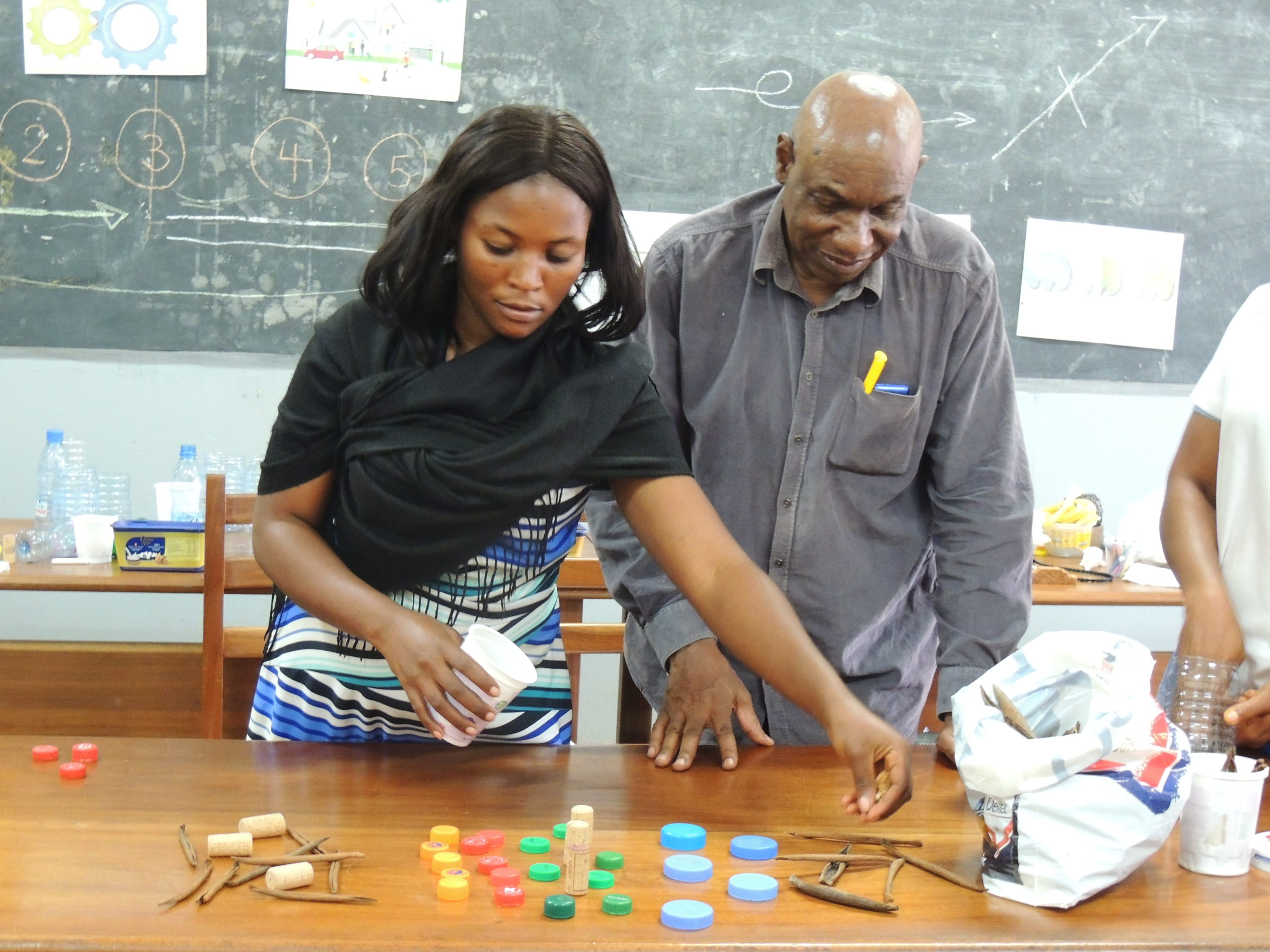
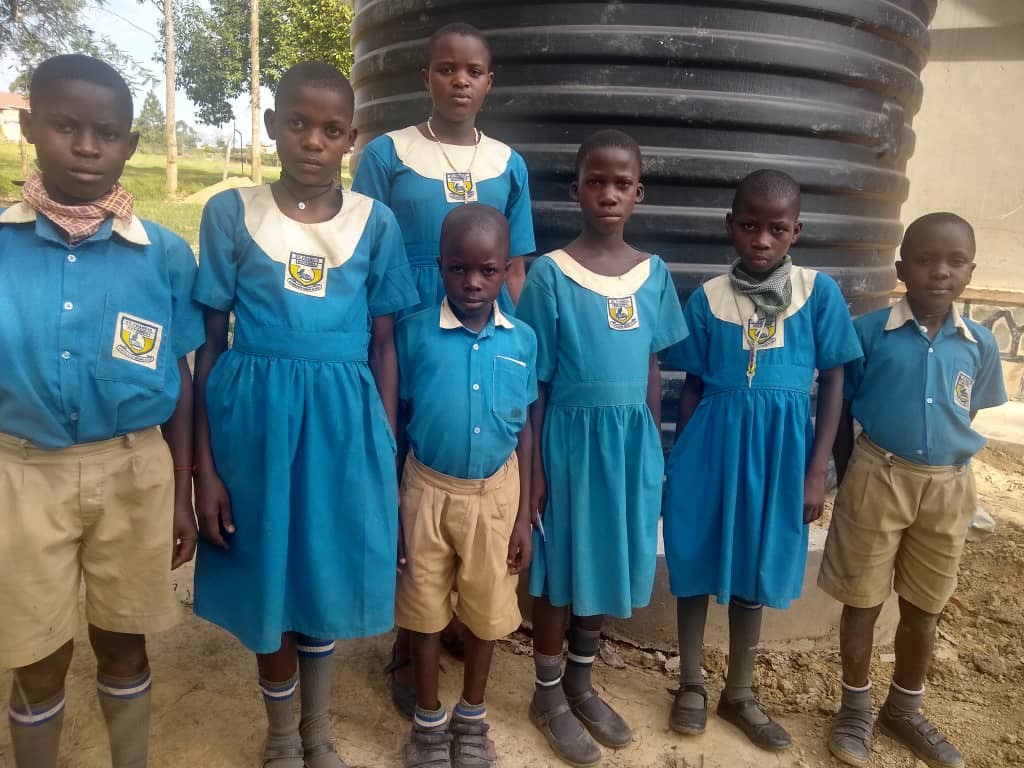
PATRIZIA School Buyamba, Uganda
The PATRIZIA Foundation has invested money from the Corona fund in important measures aimed at supporting PATRIZIA School Buyamba. The first step was to introduce a number of immediate measures to enable lessons to get underway again after the lockdown. For example, teacher salaries and tuition fees were funded, water supplies have been improved and the required coronavirus prevention measures have been put in place for reopening.
The school was forced to completely close its doors during the lockdown from March until October 2020. To allow classrooms to reopen to pupils, a variety of preventative measures had to be implemented, as laid down by the government for all schools in the country. Sanitary facilities had to be improved and hygiene precautions were introduced to prevent coronavirus from spreading.
How the Covid-19 fund helped in Buyamba in concrete terms
To improve water supplies, four tanks were purchased, each capable of holding up to 10,000 litres of water. In addition, 15 sinks were fitted for hand-washing, complete with liquid soap and thermometers. Signs were also positioned around the school with instructions on preventing the spread of Covid-19. To protect the children’s learning environment, the fence around the school grounds was also repaired. Seedlings were purchased for the school garden to grow vegetables and help provide the families with food.
Another important part of the emergency aid was the funding of school fees for three months, and of four months of salaries for the teachers and administrative staff. Without this important support, it would not have been possible to uphold the systems required to run the school and pay for the upkeep of staff.
To finance these emergency measures, the PATRIZIA Foundation invested around €17,000 from the Covid-19 relief fund. This has benefited no less than 890 children and young people, plus around 30 adults.
Further support also planned
This first project also laid the cornerstones of a future partnership between the school, the Schulwerk operated by the Diocese of Masaka, ADEPT and the PATRIZIA Foundation. To ensure the school can keep offering lessons in the long term, additional support will be needed. This is also because the number of pupils has risen by over 50% over the last decade; currently 800 students attend the school. This poses significant practical challenges, especially when it comes to running the school. For example, the classrooms are too small, especially given the need to make provisions for Covid-19.
As a result, the next step for the PATRIZIA Foundation will be to help the school build two roofed ‘outdoor classrooms’, set up a water collection system and renovate nine existing classrooms and dormitories. To help fund the new measures, in 2021 staff at PATRIZIA UK organised a Lake District Charity Challenge to raise money for the school in Uganda
The PATRIZIA Vocational Training Center in Alego, Kenya
In early 2020, the lockdown in Kenya resulted in the closure of all educational establishments in the country. Thanks to the PATRIZIA Foundation’s Corona fund, our local partner in Alego, Sauti Kuu run by the Auma Obama Foundation, was nonetheless able to offer teaching to students from the PATRIZIA Vocational Training Center sitting National Exams. This made it possible for children and young people in the area to prepare for upcoming final examinations. They also received awareness training on Covid-19 and their families were helped by Sauti Kuu to plant kitchen gardens with the aim of making them more self-sufficient in the long term. To provide emergency relief before that happens, food parcels were also distributed to address acute food shortage suffered by families as a result of coronavirus.
The impact of the Covid-19 pandemic on accessing education
In early 2020, the lockdown in Kenya meant that children were no longer able to attend school. Despite this, the Sauti Kuu Foundation wanted to help young people in Alego Nyangoma prepare for National Exams, so it launched its Learning Support Initiative through money from the Covid-19 relief fund. This made it possible to offer lessons at the PATRIZIA facilitiy, originally built thanks to funding from the PATRIZIA Foundation and now also home to the training centre run by Sauti Kuu. The building is big enough to comply with social distancing rules. Masks were also given to teachers and students, and hand-washing facilities have been set up.
Overall, the project enabled 30 exam candidates to attend Sauti Kuu every day (14 from the high school and 16 from the primary school), providing a valuable opportunity to revise in small groups. The children also participated in Covid-19 awareness training. Teaching materials were paid for through the relief fund. To enable the pupils to get some exercise, non-contact sports were also organised.
By the time the examinees sponsored by Sauti Kuu returned to school in October 2020, the project had been expanded to include pupils from other grades. This made it possible to allow a further 144 children to return to lessons under the Learning Support Initiative. By June 2021, the project had been extended to enable another 110 children to receive support with their education. As a result, 284 children and young people are now participating in lessons again, despite school closures.
Self-sufficiency thanks to ‘kitchen gardens’
The Sauti Kuu Foundation has also been supporting 200 disadvantaged families – relatives of participants in the initiative – by involving them in a ‘Grow to Eat Project’. Based on a principle called ‘Use of what you have to get what you need’, Sauti Kuu trains families to plant kitchen gardens, thus offering them the long-term perspective of self-sufficiency. In addition, any surplus produce can later be taken to market and sold to generate money. To tide families over until the first harvest, they have been receiving food parcels to set the ball rolling. The children also helped plant the gardens so that they could also benefit from this valuable know-how in the future. The workshops organised for the families covered topics such as working the soil, water extraction, monetary matters, nutrition, food preservation and storage.
Help in the neighbourhood
The Covid-19 relief fund has also enabled the Sauti Kuu Foundation to provide masks and hand-washing facilities to several schools in the area, the local medical centre, a shopping centre and the families of students participating in the project. The schools and medical centre were also provided with thermometers and oximeters.
Conclusion
The biggest achievement of the project, especially the initiative aimed at supporting educational needs, was to see the wonderful exam results of the students. Nine of the 30 examinees ranked among the top performers, and 18 did well enough to advance to secondary school or university. A further successful outcome of the initiative was the setting up of the kitchen gardens, providing 200 families with a sustainable source of nutrition.
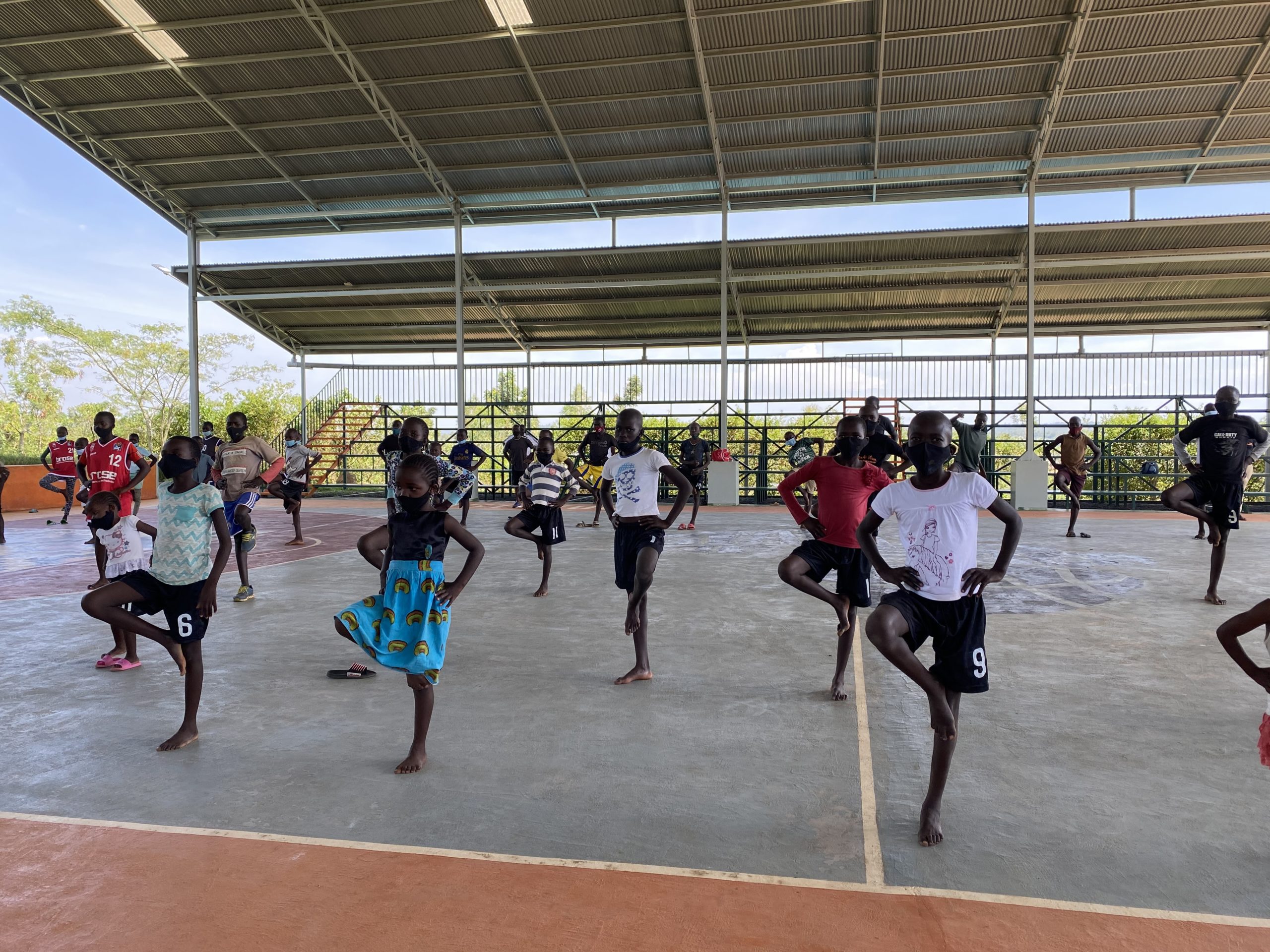
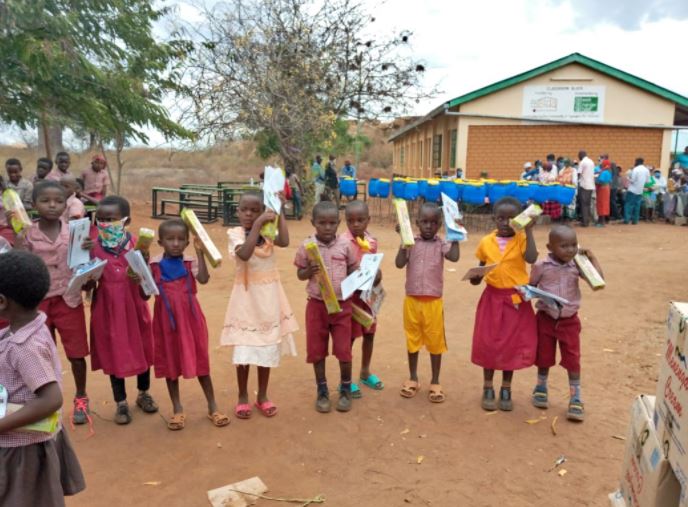
PATRIZIA School Syangeni, Kenya
The outbreak of the pandemic in Kenya in March 2020 caused major problems, especially in rural communities. Many people lost their jobs and soon there was a shortage of disinfectants and face masks. As the local partner of PATRIZIA School Syangeni, the aid agency Welthungerhilfe financed preventative measures with support from the coronavirus relief fund in order to contain the spread of the virus. Hygiene items were distributed and Covid-19 awareness training was provided. There was also training on making soap and sewing masks.
To do something about this situation, in early 2020 aid agency Welthungerhilfe applied to the PATRIZIA Foundation for financial support through the coronavirus relief fund. The aim was to help communities around the primary school in Syangeni by providing personal protection equipment. Two coordination meetings were organised for Welthungerhilfe to work with the local authorities on planning and implementing the required activities.
Hygiene products and training on soap-making and mask-sewing
By the time the second meeting took place, it was already possible to distribute purchased items among the school community and surrounding households. These included more than 750 triple-ply washable face masks, a similar number of hygiene kits containing soap and hand sanitisers, and more than 130 handwashing kits (buckets with taps). In addition, Welthungerhilfe arranged for 1000 Covid-19 awareness flyers to be printed and distributed in order to explain how to protect against the virus.
To maintain the momentum of the project in the long term, 55 community volunteers were given training on protective measures against Covid-19, including instruction on how to make soap. Fifteen students were also given training on sewing washable face masks. To make this possible, five sewing machines were purchased. Staff involved in the programme received personal protective equipment (masks, gloves and hand sanitisers), with 25 kits provided in total.
Conclusion
Receiving financial support for the Covid-19 prevention measures – not just at Syangeni primary school but also in the surrounding communities – was highly appreciated by the school community, in a number of ways. In addition to offering protection against Covid-19, the children were made more aware of hygiene measures in general and handwashing quickly became a commonplace routine. The pupils were also able to learn important skills at a young age – such as mask-sewing, which may also be useful later on in life.
The ‘No Chance for Corona’ comic helps children understand the virus
Many schools are still closed and sadly, children are not allowed to meet up with friends and their grandparents – a situation that affects almost all countries worldwide due to the coronavirus pandemic. For children, this is difficult to understand.
To do something about this, Welthungerhilfe, a charitable partner to the PATRIZIA Foundation in Kenya, joined forces with the Berlin-based social enterprise WASH United to write a comic aimed at helping children and young adults understand Covid-19. It’s mainly aimed at 10- to 14-year-olds and as well as explaining what the virus is, it also describes necessary preventative measures. The comic has been translated into more than 20 languages, from Amharic to Pashto and Swahili.
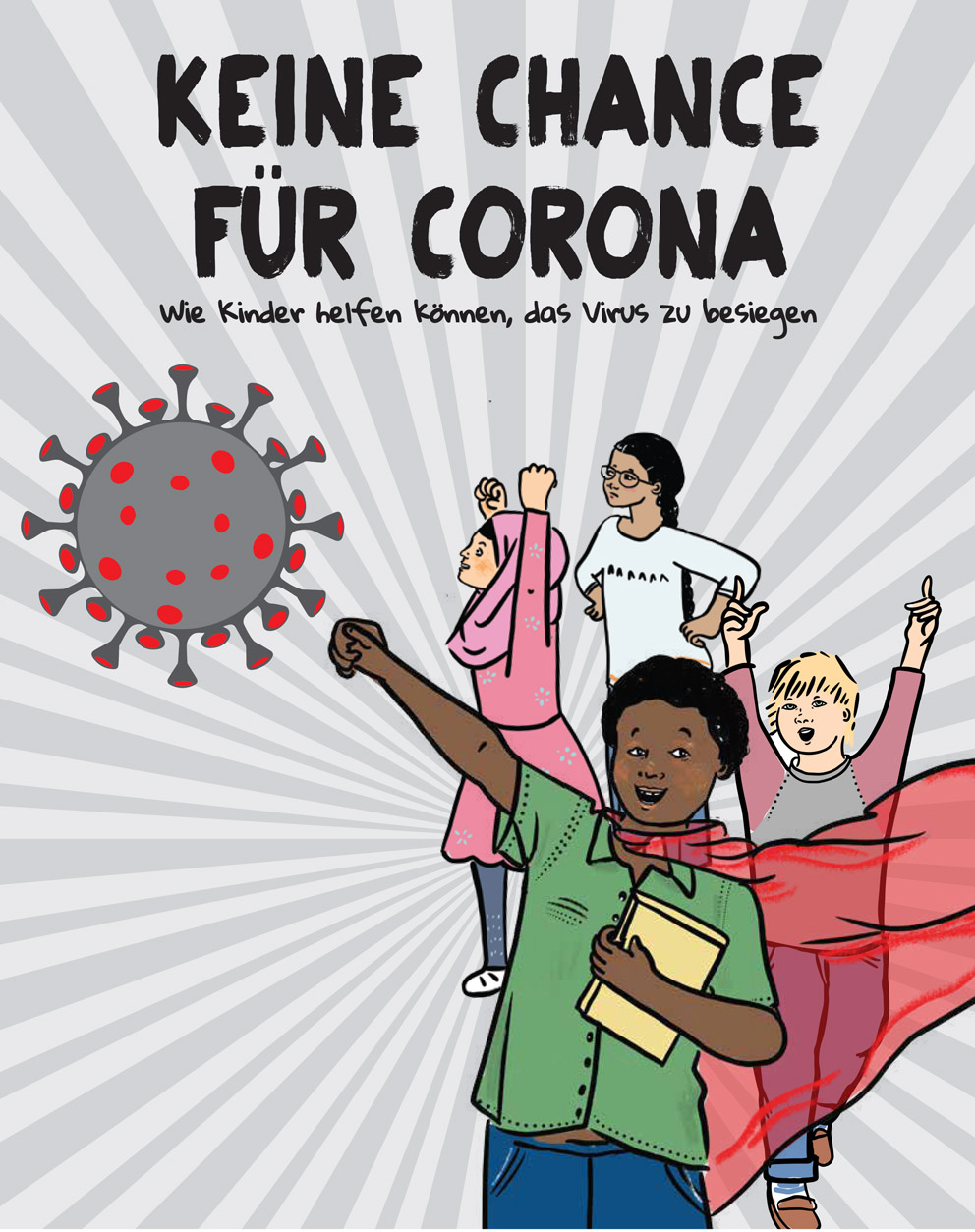
How we provide help in our communities
Difficult times have a tendency to strengthen social cohesion and often spawn the most beautiful stories. We have collected some of these tales of happiness for you. You might want to read the tales yourself and discover how, for example, our project partners and the parents of our schoolchildren developed new strengths during the initial months of the coronavirus pandemic.
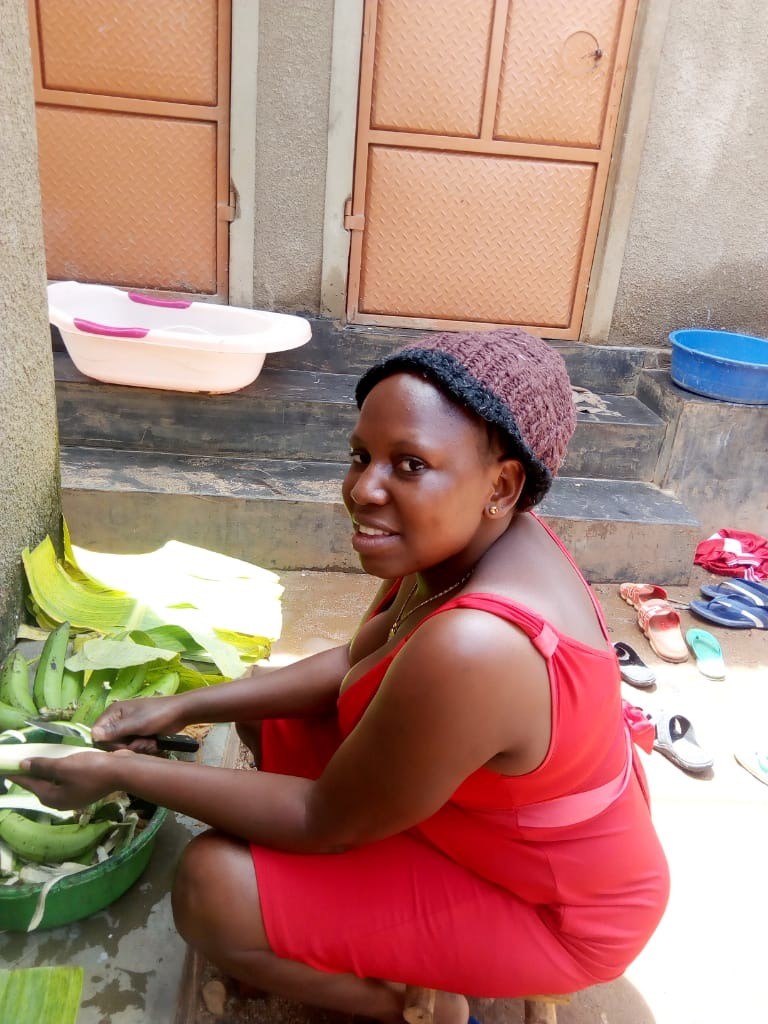
Help right next door
Debbie is a teacher at the PATRIZIA School Buyamba in Uganda. She teaches English and Science to primary school students. Currently, as the school is closed, she is in lockdown at home.
Debbie, how are people in your community coping with the situation?
We have been lockdown for a few weeks and everybody is at home now. A lot of people in my community are slowly running out of supplies and need food – especially the elderly in the village. Everyone is looking around to see who could need help, not only family members. So many people are donating food to other people, not in a big way, but they look around and care for those living next door.
How do you help?
When I go shopping, I think of my older neighbours and take an additional kilo of sugar or cornmeal with me to give to them. Often when I am cooking for my family, I will also carry an additional plate to our older neighbour. We like to eat matoke in our area – that is plantains, which can be cooked in a thousand different ways. With matoke everybody has a full stomach, and it is healthy and tastes incredibly good.
Notes to cope with the fear
Peter Nshimyumukizais a former student from the PATRIZIA Vocational Training Ntarama in Rwanda. He settled down with his family in the region and works usually as a qualified worker on construction sites. He also built his family house by himself. He has two children, Jean Simeon and Jean Yves.
Peter, how is your family coping with the situation?
My children are aged three and five years old. They do not fully understand the situation. Currently they are not allowed to play with other children, as they are used to. They also do not go to school and kindergarten. Again and again, every time something new about corona, they ask about it. They have many questions. They are also a bit afraid that mum or dad might get sick.
How do you help?
I cannot explain to my children what is really going on in the world, but I understand their fear and I want to take it away. That is why I have taught them prayers that they recite over and over when they feel a little bit of fear. The boys came up with the idea of sharing the prayers with other children, so we write them on slips of paper and leave them outside their friends’ doors whenever we go shopping.
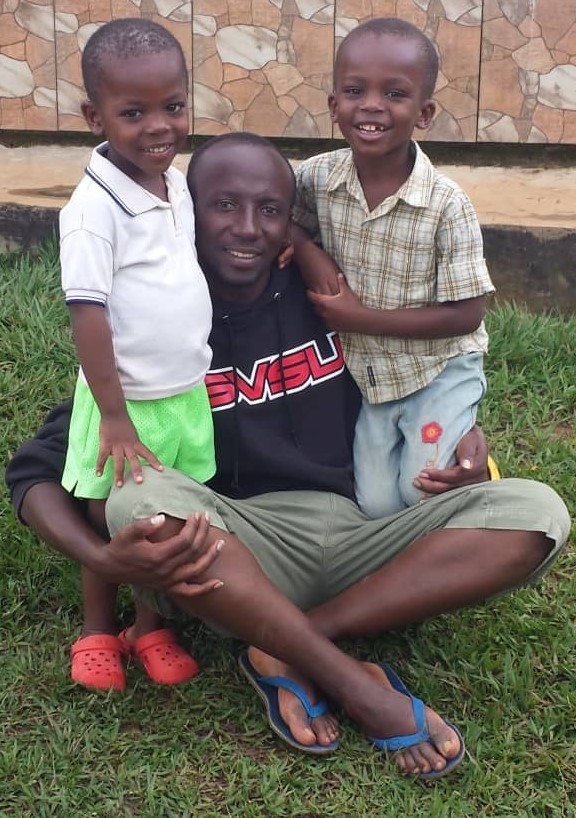
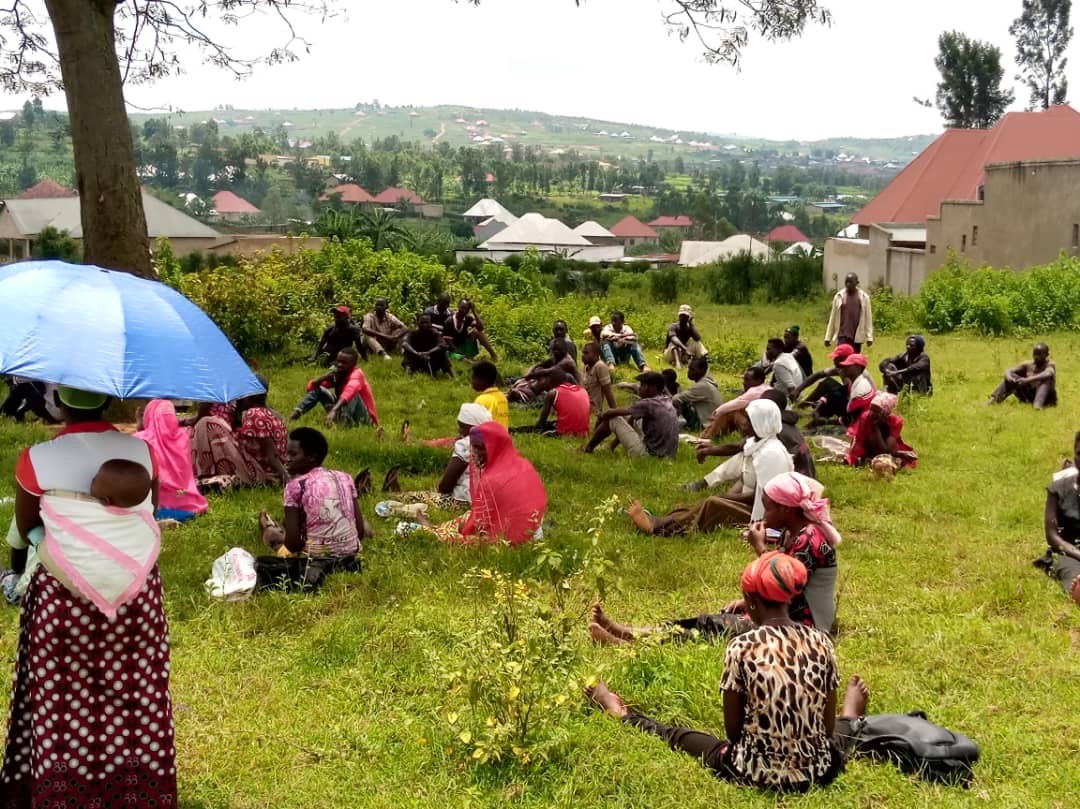
Food for the poor
Théophile Rutabana is Managing Director at the PATRIZIA Vocational Training Ntarama in Rwanda.
Théophile, how are the people in your community coping with the situation?
The situation is precarious. Many people have no jobs and we don’t know how long the crisis will last. People in my village collect money to help those who cannot afford to buy food during the lockdown. Every donor gives a small amount of money, but we appreciate every donation. Everyone who can afford it is willing to help. This fosters a good feeling of community.
Schools were told to provide help. As Managing Director of a public school, I decided to offer professional help with the charity work. I was involved in fundraising and helping the poorest in the community. We collected a lot of donations and organised help for people in our village. The needy families ended up with 5 kilos of corn and 5 kilos of beans. This required many donations and was a great success.
Father Jude’s shelter
Father Jude is the parish priest in Buymaba in Uganda. He is also the priest of our project partner at the PATRIZIA School in the village. He not only takes care of the spiritual well-being of the school. Together with the principal, Madame Sylvia, he helps run the school. The PATRIZIA School in Buyamba is his heart and soul.
Father Jude, how are the people in your community coping with the situation?
Food has become very expensive, as is usual in times of crisis, so people are eating all their supplies. People are more afraid now of hunger than coronavirus. Also, the families will not be able to pay the school fees either. As a school we have to be prepared for this. What is positive about such a crisis is that the people in the village stick together and help each other more than usual.
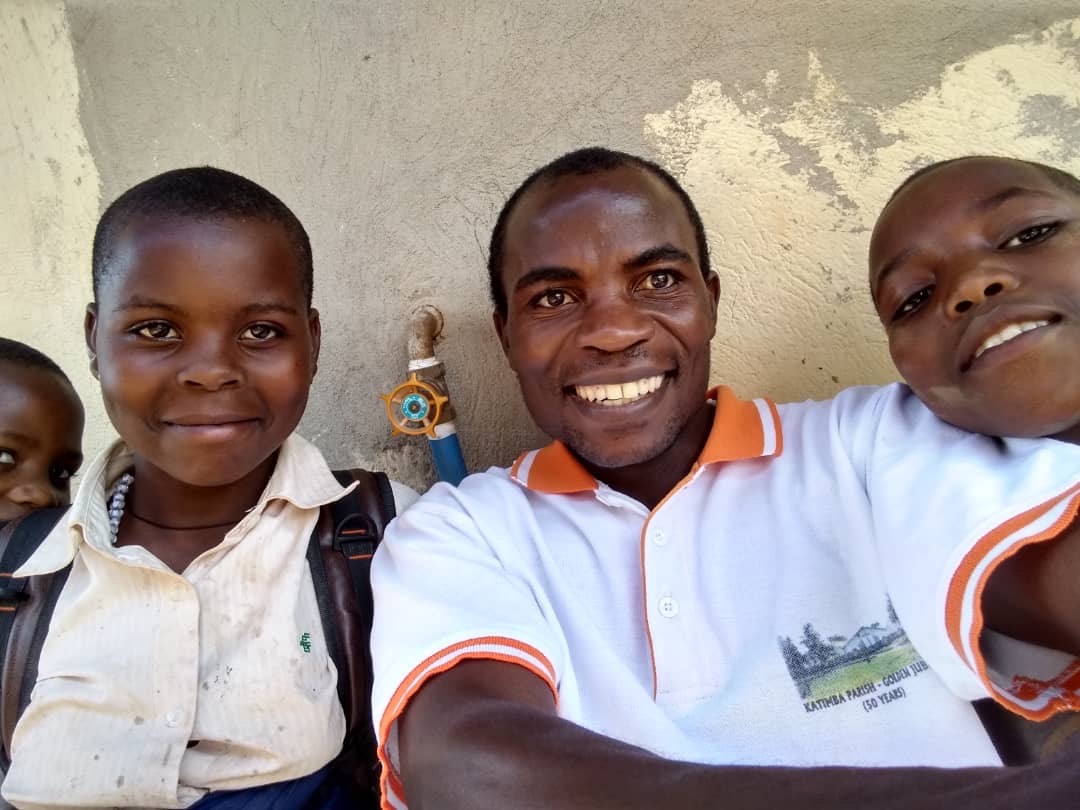
I am a priest of the parish, so my job is to help but I cannot help everyone. I have a few families where I know that I must take care of them because they cannot do it themselves. But most of the help I give is to the children who come to me. There are some who come every day or stay with me because their parents have smaller children for whom they can hardly care. So, the older children stay with me to survive. One of them finished primary school last year, two of them are in secondary school, some of them just come for lunch because they would not get it at home. So that’s my help and that’s a given and no matter if the crisis is called corona or poverty.
Our thanks go to everyone for their support. Do look after yourselves and stay healthy!
